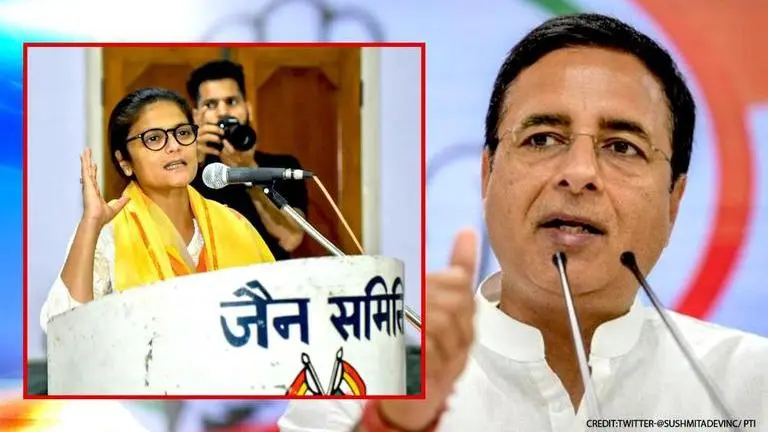Updated 22 March 2021 at 18:12 IST
Congress rebuffs MP Sushmita Dev over CAA stance, firm on Assam Assembly polls promise
In a clear rebuff to Silchar MP Sushmita Dev, Congress made it clear that it will not allow the implementation of the CAA after coming to power in Assam.
- India News
- 3 min read

In a clear rebuff to Silchar MP Sushmita Dev, the Congress party made it clear that it will not allow the implementation of the CAA after coming to power in Assam. This comes nearly two weeks after the party quashed rumours that the All India Mahila Congress president had stepped down amid differences over seat-sharing with AIUDF. In this case, however, Surjewala was referring to Dev backing the Citizenship Amendment Act citing that people in the Barak Valley are in its favour. Despite her party being totally opposed to this law, she also sparked a row recently by refusing to wear the 'no CAA' gamosa.
However, the Congress communications in-charge made it clear that the party's official stand taken will prevail over someone's personal opinion. Interestingly, Congress leader Gaurav Gogoi took a dig at BJP over its stance on the CAA ahead of the Assembly polls. A day earlier, he tweeted, "The BJP has promised implementation of CAA in its manifesto in West Bengal. Can the BJP please clarify whether they plan to implement CAA in Bengal but not in Assam? In other words, do they agree with the Congress’s Guarantee of a law that would nullify CAA in Assam?"
"Congress line is very clear we are against CAA and will scrap it. This is the stand taken by Rahul Gandhi and this is the stand of Congress. Someone's personal stand can never be the stand of the Congress party," Randeep Surjewala remarked.
What is the CAA?
The CAA seeks to provide citizenship to the minority communities namely Hindus, Sikhs, Buddhists, Jains, Parsis and Christians from Afghanistan, Bangladesh and Pakistan. This will be applicable to the members of these communities having arrived in India on or before December 31, 2014. Moreover, they shall not be considered as illegal migrants. Additionally, the mandatory residence period for naturalised citizenship for these communities would be reduced to 5 years. Several parties in the North East such as the (AASU) have been vehemently opposed to this legislation.
To ameliorate their concerns of organizations such as the All Assam Students’ Union, the Centre has exempted a major part of the North East from the ambit of the Act. The opposition contended that the Act discriminates on the basis of religion, which might go against Article 14, which guarantees the right to equality. After an hours-long debate in both the Lok Sabha and the Rajya Sabha, the legislation was cleared by a majority of the members voting in the favour of the Centre in December 2019. However, the CAA is yet to be implemented as its rules are still being framed.
Advertisement
Published By : Akhil Oka
Published On: 22 March 2021 at 18:12 IST
